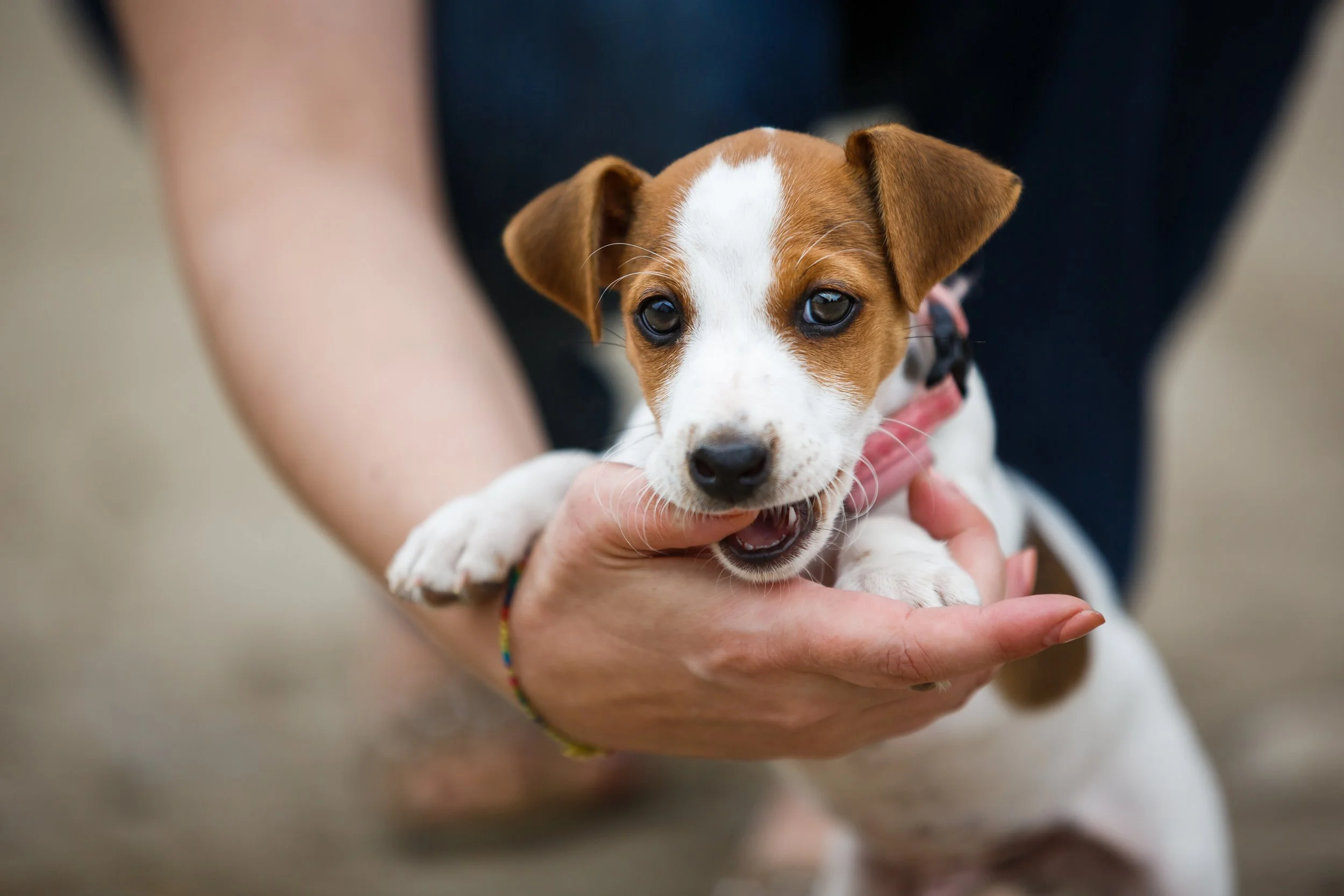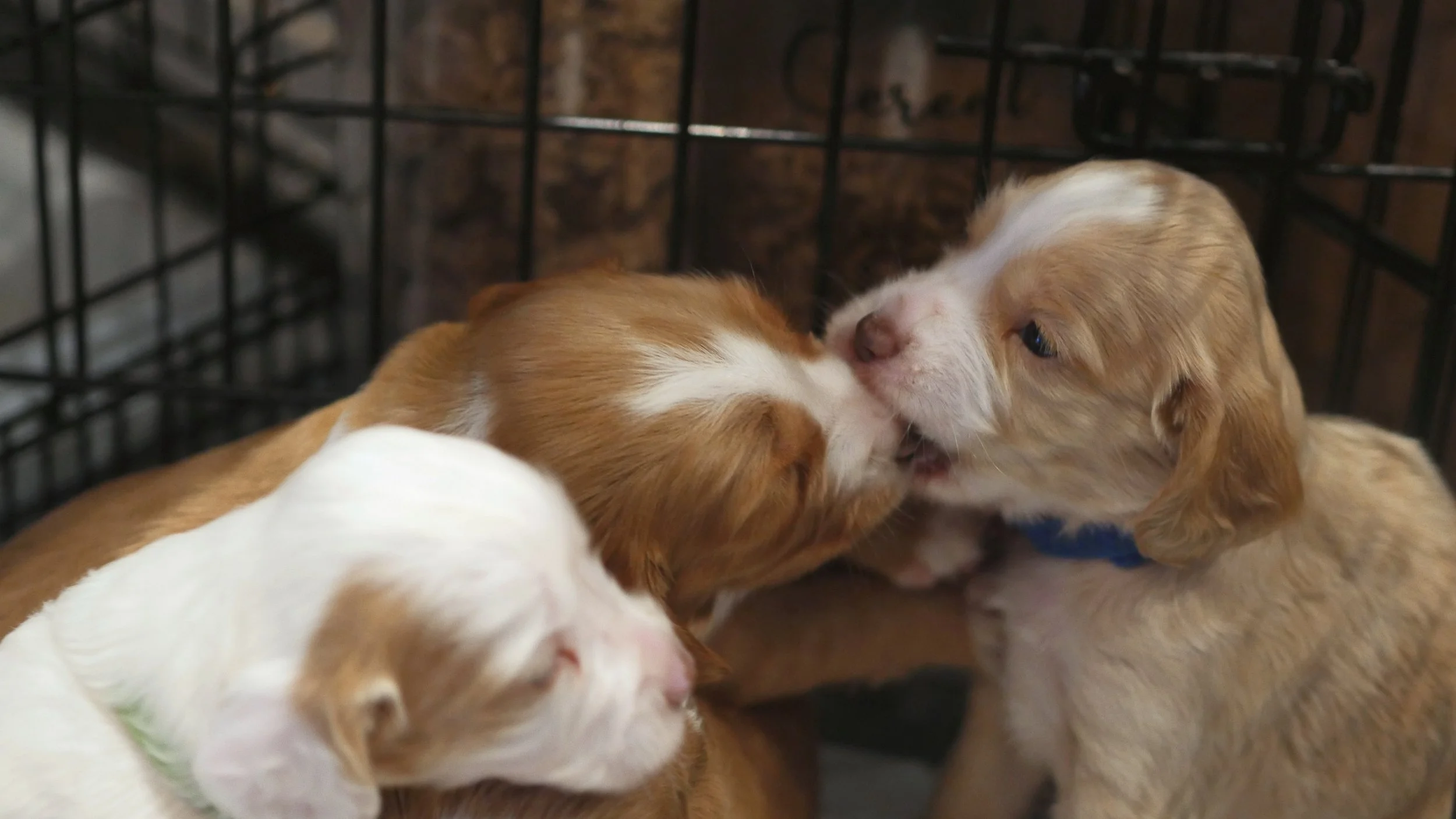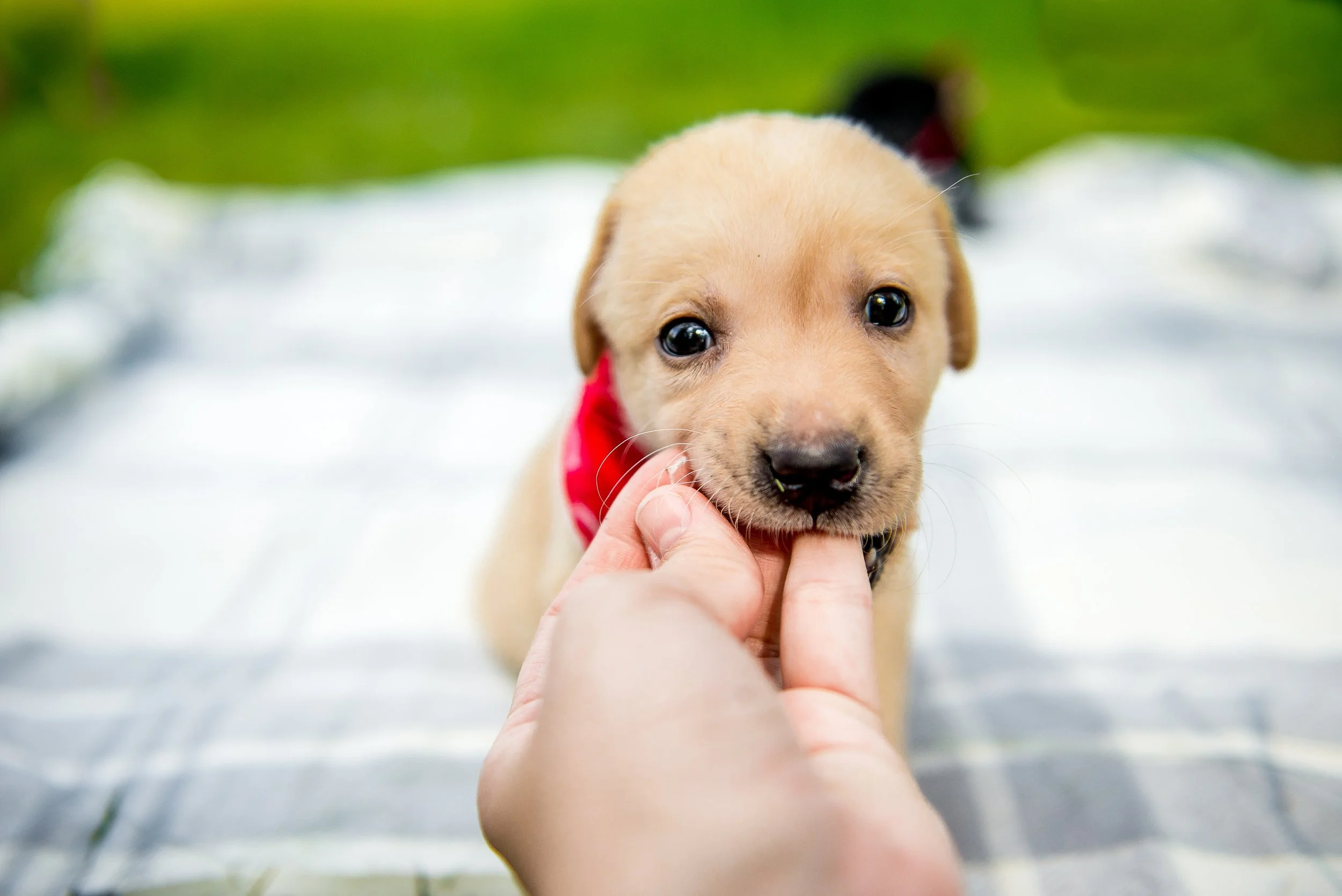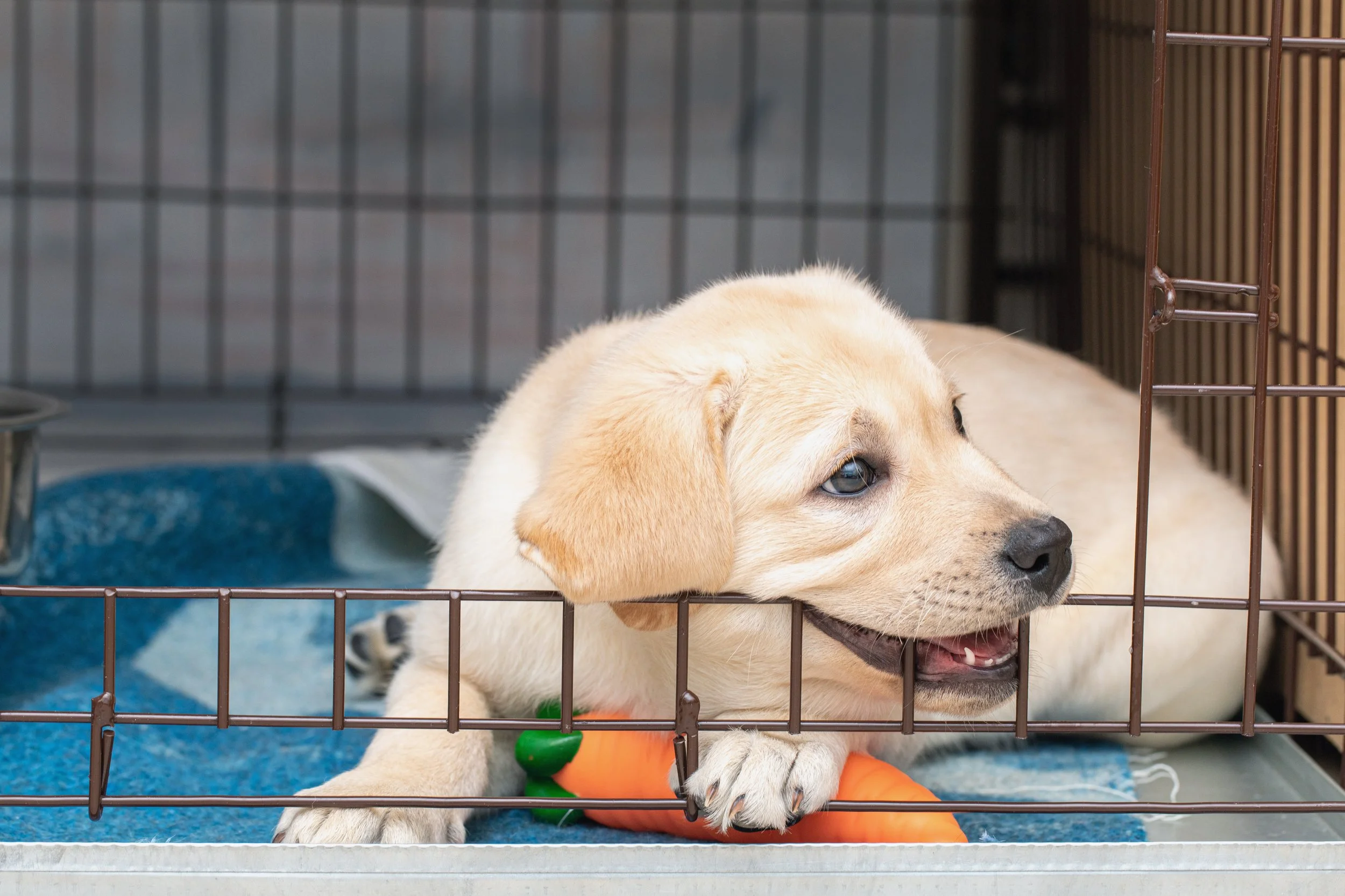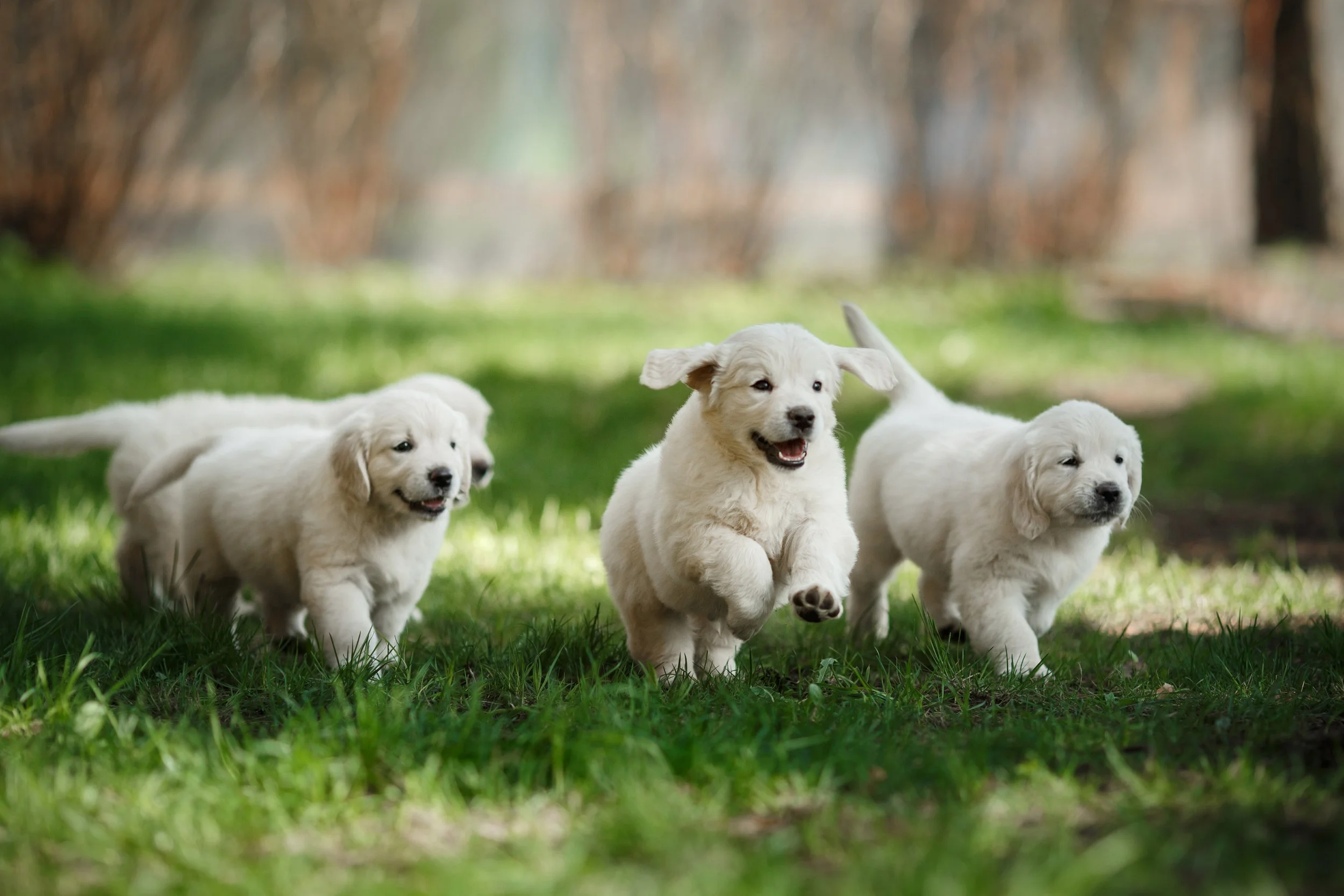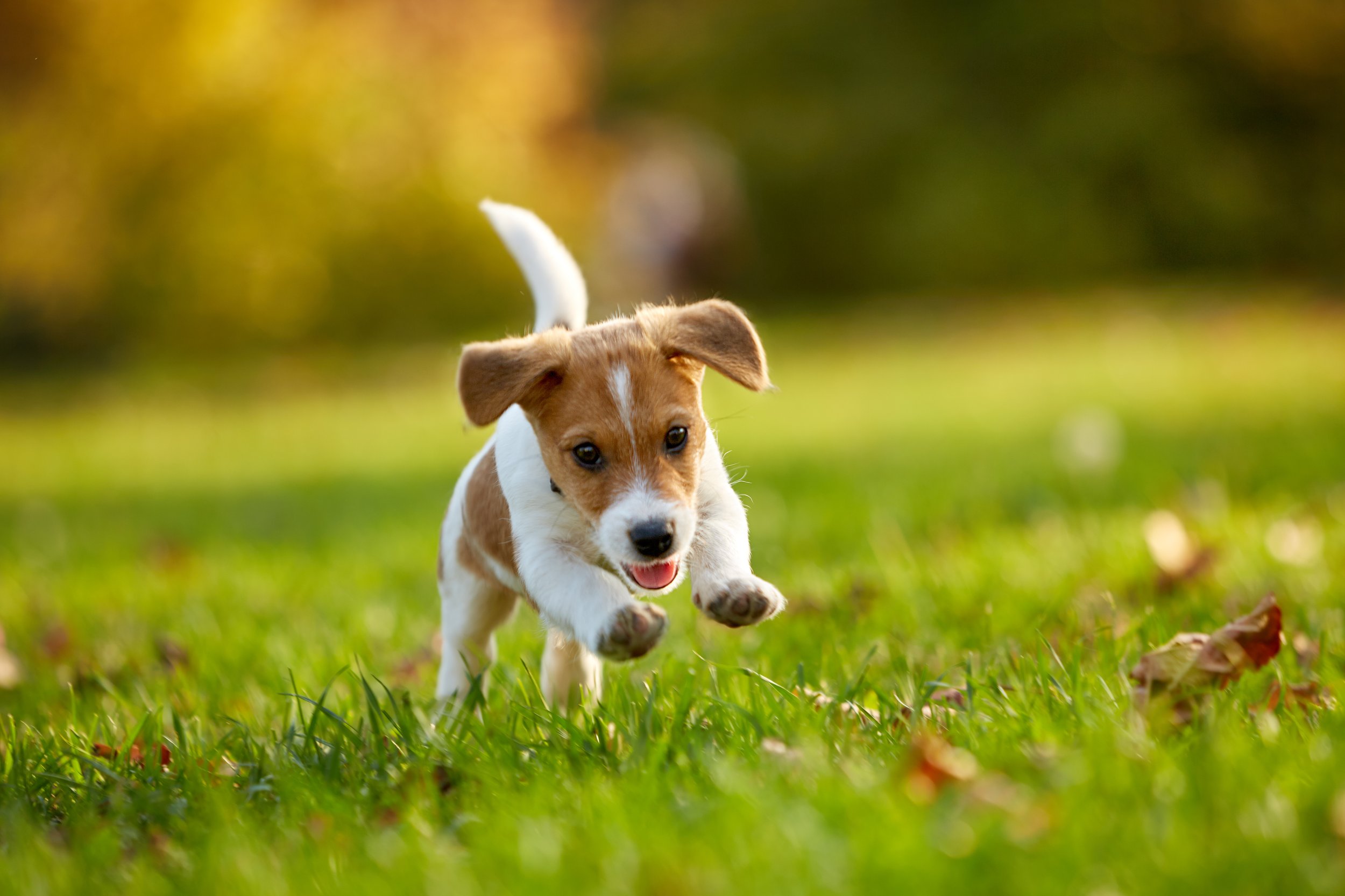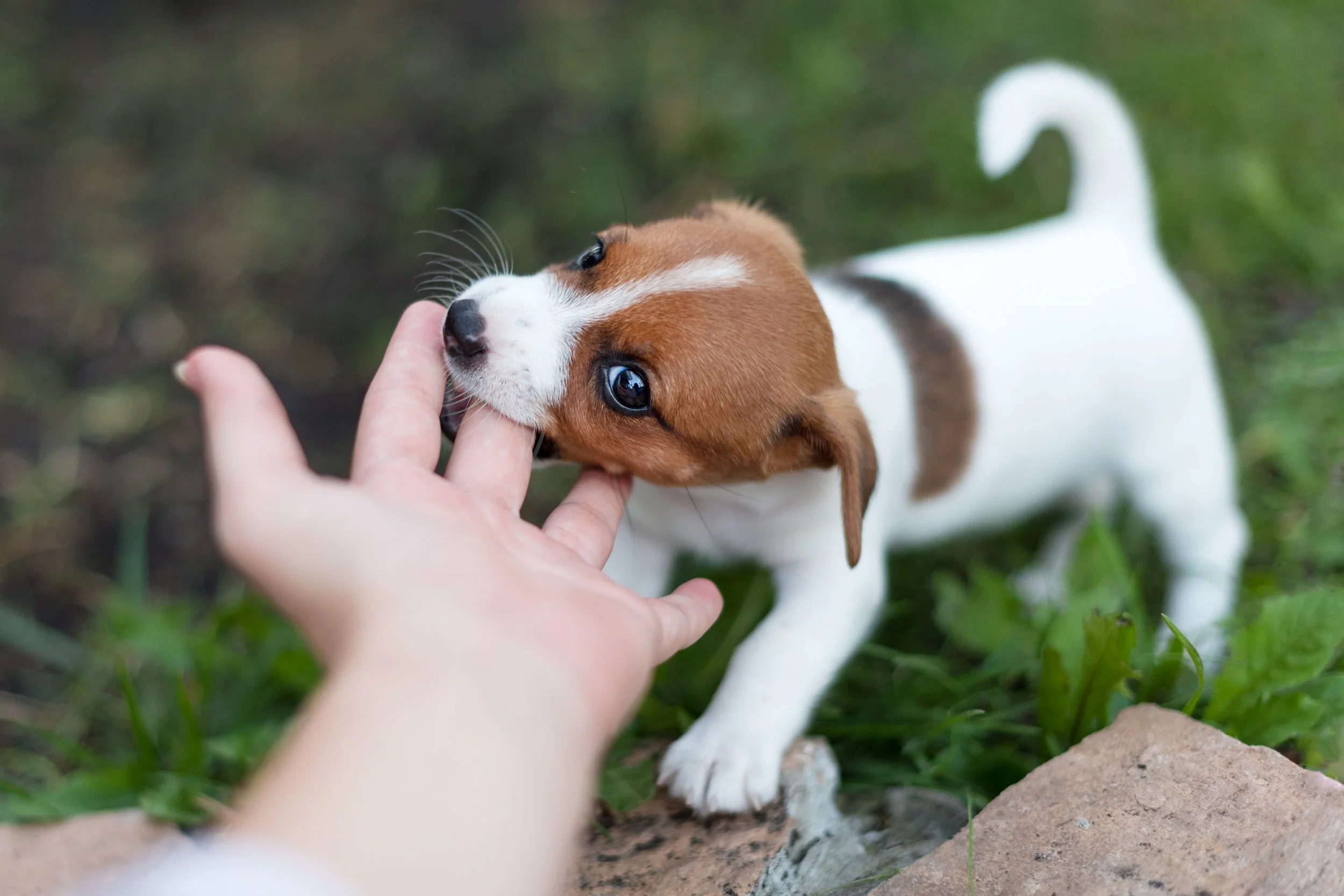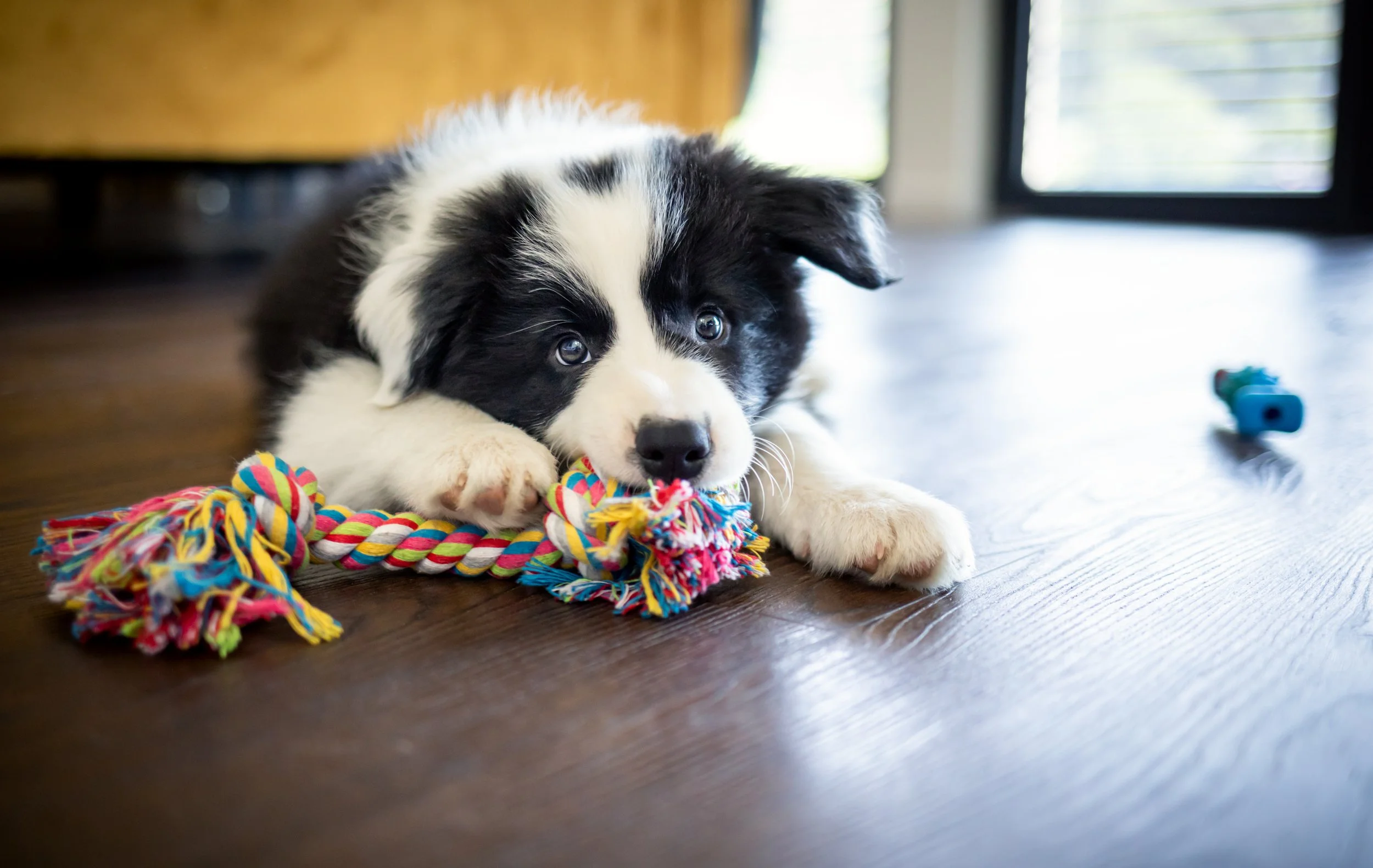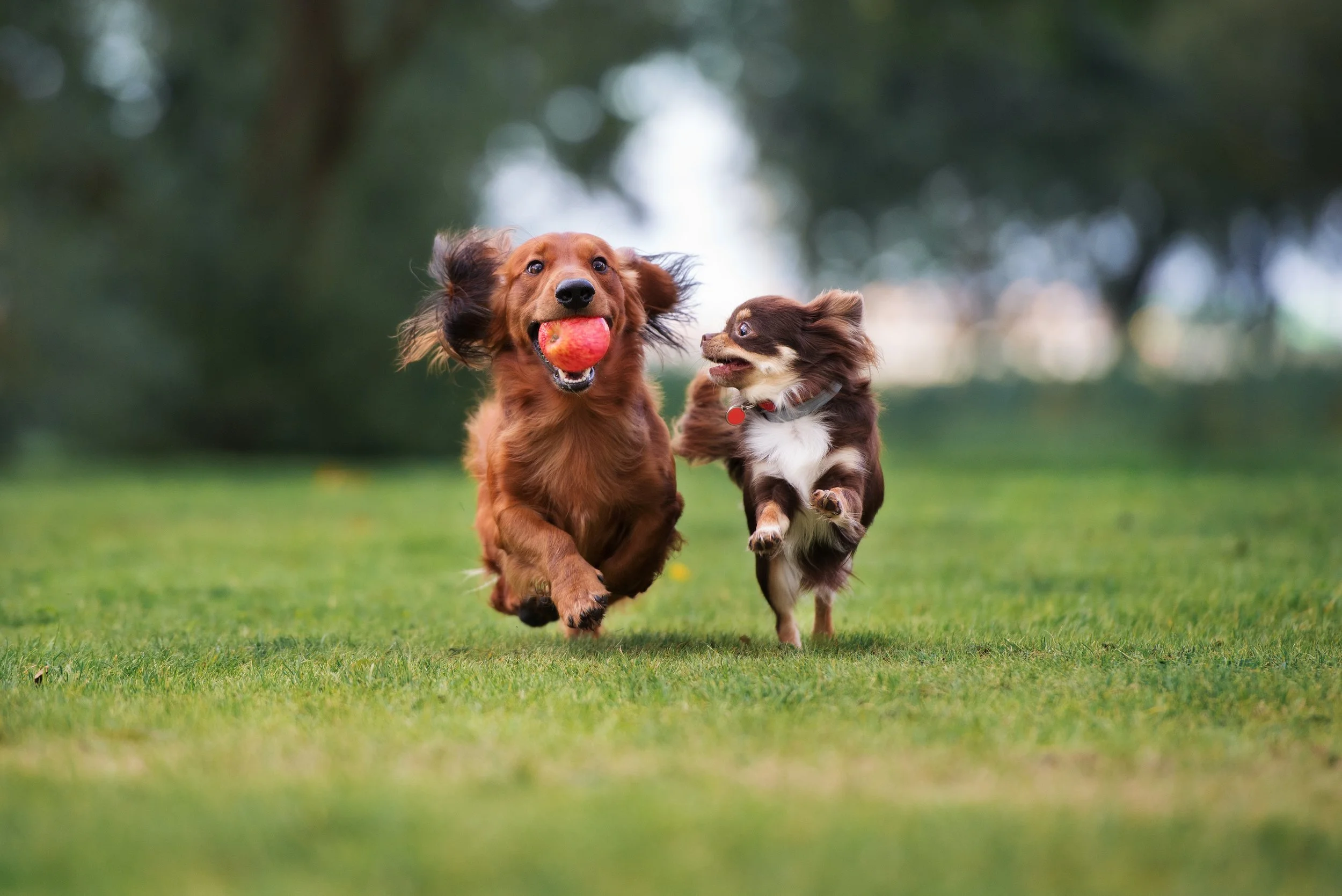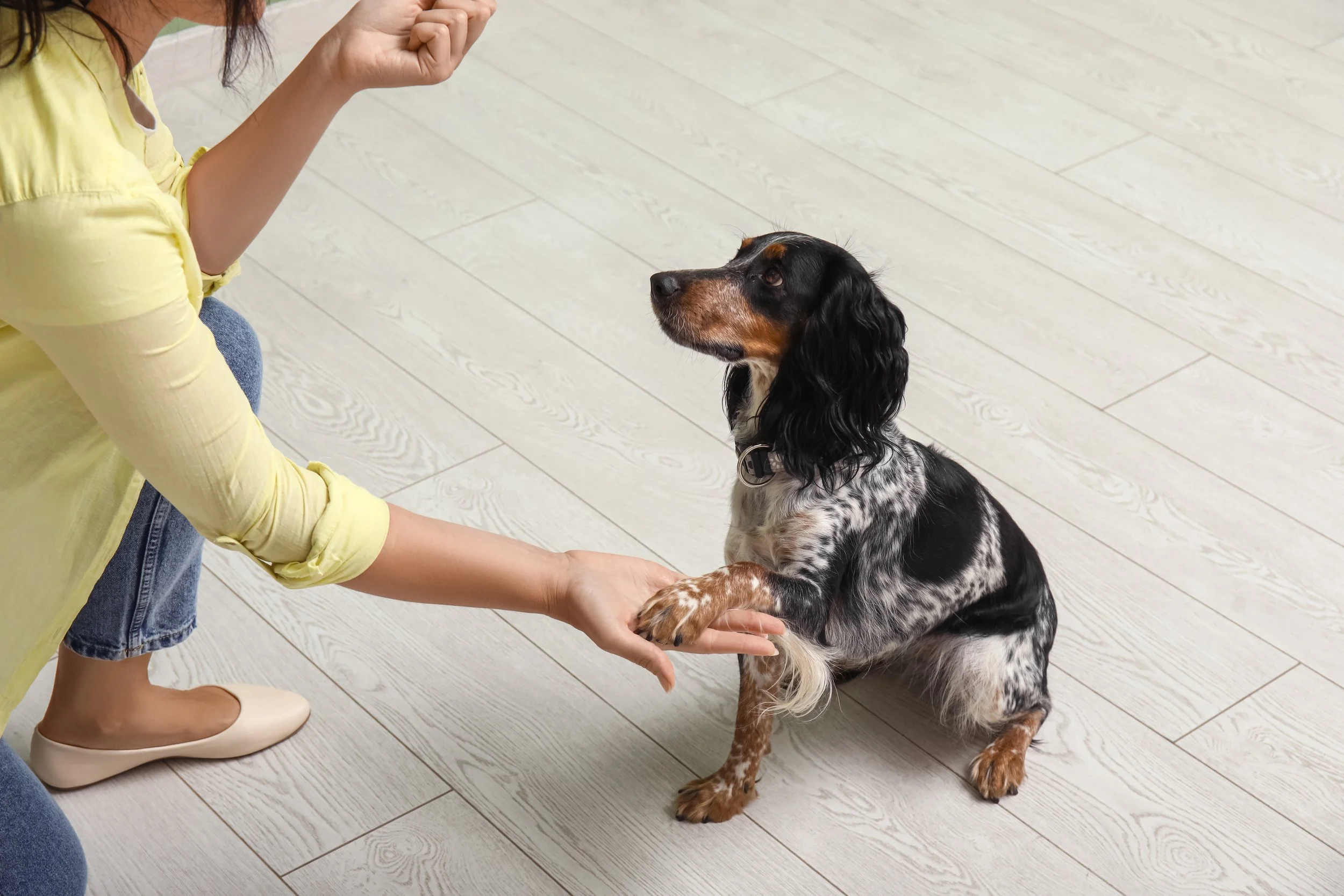Why is My Puppy Biting Me? And How to Make it Stop.
If you’re reading this article, chances are you’re dealing with a fury little land shark who seems to think your hands, feet, and favourite shoes are the most delicious chew toys in the world. You’re not alone in this struggle, and more importantly, you’re not doing anything wrong. Puppy biting is one of the most common challenges new dog owners face, and with the right understanding and techniques, it’s completely solvable.
Jack Russel Puppy Biting Hand
You’re Not Alone in This Struggle
Before we dive into solutions, let’s put your experience into perspective. Recent studies show that 99% of dogs have some form of behavioural issues, with 86% of dogs experiencing moderate to serious problems with biting and nipping during their puppy years. Despite this overwhelming prevalence, only 8% of dog owners seek professional training help, leaving millions of puppy parents feeling frustrated and alone.
The truth is, puppy biting is not a reflection of your abilities as a pet parent, nor is it a sign that your puppy is aggressive or “bad.” It’s a completely normal part of puppy development that, with proper guidance, can be redirected into appropriate behaviours that strengthen your bond rather than strain it.
Understanding Why Puppies Bite
To effectively address puppy biting, we first need to understand why it happens. Puppies don’t bite to be malicious or to assert dominance over you. There are four primary reasons why your adorable little companion has turned into a tiny piranha.
1. Teething and Oral Exploration
Just like human babies, puppies explore the world with their mouths. Between 3 and 6 months of age, puppies are actively teething, losing their 28 baby teeth and growing their 42 adult teeth. This process can be uncomfortable and even painful, leading them to seek relief by chewing on anything they can find – including you.
During this phase, your puppy’s gums are sore and inflamed, and the pressure from biting provides temporary relief. They’re not trying to hurt you; they’re simply following their natural instincts to alleviate discomfort. Understanding this can help you respond with patience rather than frustration.
2. Play Behaviour
In the wild, puppies learn bite inhibition through play with their littermates and mother. When a puppy bites too hard during play, their sibling will yelp and stop playing, teaching the biting puppy that hard bites end the fun. Unfortunately, many puppies are separated from their litters before they’ve fully learned this crucial lesson.
When your puppy bites you during play, they’re engaging in natural dog behaviour. They haven’t yet learned that human skin is much more sensitive than their littermates’ thick fur and skin. This is why play biting often seems to come out of nowhere and can be surprisingly painful despite your puppy’s small size.
3. Attention-Seeking
Puppies are incredibly smart and quickly learn which behaviours get them attention from their humans. If biting results in a big reaction – whether it’s yelping, pulling away, or even scolding – your puppy may interpret this as a successful way to engage with you.
This is particularly common in households where the puppy doesn’t receive enough mental stimulation or structured interaction throughout the day. A bored puppy will often resort to biting as a way to initiate play or simply to get their human to pay attention to them.
4. Overstimulation and Excitement
Young puppies have limited self-control and can become easily overstimulated during play or exciting situations. When they reach this threshold, they may resort to biting as a way to release excess energy. This is often seen during vigorous play sessions, when meeting new people, or during times of high household activity.
Think of it like a toddler having a meltdown when they’re overtired – your puppy’s biting during overstimulation is their way of saying they need help calming down and regulating their emotions.
Young puppies have limited self-control and can become easily overstimulated during play or exciting situations.
The 3 Biggest Mistakes That Make Biting Worse
Before we discuss effective solutions, it’s crucial to understand what not to do. These common mistakes can actually reinforce biting behaviour and make the problem worse over time.
Mistake #1: Using Your Hands as Toys
One of the most common mistakes new puppy owners make is encouraging their puppy to play with their hands. While it might seem cute when your 8-week-old puppy gently mouths your fingers, this behaviour becomes much less adorable when that same puppy is 6 months old with a full set of adult teeth.
One of the most common mistakes new puppy owners make is encouraging their puppy to play with their hands.
Playing with your hands teaches your puppy that human skin is an appropriate target for their teeth. This creates confusion when you later try to discourage biting – your puppy doesn’t understand why hands were okay to bite yesterday but not today.
Mistake #2: Punishment and Negative Reactions
Many well-meaning owners resort to punishment when their puppy bites, including yelling, hitting, or using techniques like alpha rolls or scruff shakes. Not only are these methods ineffective, but they can actually increase biting behaviour and damage your relationship with your puppy.
Punishment can create fear and anxiety in your puppy, leading to defensive biting or increased aggression. It also fails to teach your puppy what you want them to do instead of biting, leaving them confused and more likely to repeat the unwanted behaviour.
Mistake #3: Inconsistent Responses
Consistency is key in puppy training, yet many households struggle with this when it comes to biting. If sometimes biting results in play and attention, while other times it results in the human walking away, your puppy receives mixed messages about whether biting is acceptable.
This inconsistency actually strengthens the biting behaviour through what behaviourists call “intermittent reinforcement” – the most powerful way to maintain a behaviour. Your puppy will continue biting because sometimes it works to get what they want.
5 Simple Steps to Stop Puppy Biting
Now that we understand why puppies bite and what not to do, let’s focus on effective, positive solutions that will help your puppy learn appropriate behaviour while strengthening your bond.
Step 1: Redirect to Appropriate Chew Toys
The moment your puppy’s teeth touch your skin, calmly say “oops” or “ouch” in a neutral tone and immediately redirect them to an appropriate chew toy. Keep a variety of toys easily accessible so you can quickly make the switch.
Choose toys with different textures and hardness levels to satisfy your puppy’s various chewing needs. Rope toys, rubber toys, and frozen Kong toys can all provide different types of relief for teething discomfort. The key is to make the toy more interesting than your skin by praising enthusiastically when your puppy chews on the appropriate item.
Choose toys with different textures and hardness levels to satisfy your puppy’s various chewing needs.
Step 2: Use a Consistent Verbal Cue
Develop a consistent verbal cue that signals to your puppy that their teeth have made contact with skin. Many trainers recommend “ouch” or “oops” said in a calm, matter-of-fact tone. Avoid high-pitched yelping, as this can actually excite some puppies and encourage more biting.
The goal is to create a clear communication system where your puppy learns that this sound means “teeth on skin equals end of interaction.” Be consistent with your chosen word and ensure all family members use the same cue.
Step 3: Implement Brief Time-Outs
When redirection doesn’t work or if your puppy continues to bite after being redirected, implement a brief time-out. This doesn’t mean punishment – instead, it means calmly removing yourself from the interaction for 10-30 seconds.
You can either step away from your puppy or gently place them in a safe, boring area like a bathroom or laundry room. The time-out should be brief and boring, not scary or punitive. The goal is to teach your puppy that biting makes the fun human disappear.
Step 4: Teach Bite Inhibition Through Games
Bite inhibition – the ability to control the force of their bite – is one of the most important skills your puppy can learn. You can teach this through structured games that reward gentle mouth contact while discouraging hard bites.
Try the “gentle” game: offer your hand with a treat hidden in your palm. If your puppy mouths gently, praise and give the treat. If they bite hard, say your verbal cue and close your hand, waiting for gentler contact before rewarding. This teaches your puppy that gentle mouths get rewards while hard bites make good things disappear.
Step 5: Ensure Adequate Exercise and Mental Stimulation
A tired puppy is a well-behaved puppy. Many biting problems stem from excess energy and boredom. Ensure your puppy gets appropriate physical exercise for their age (generally 5 minutes per month of age, twice daily) and plenty of mental stimulation through puzzle toys, training sessions, and supervised exploration.
Mental exercise is often more tiring than physical exercise for young puppies. Short training sessions, sniff walks, and food puzzle toys can help tire out your puppy’s brain and reduce problematic behaviours like excessive biting.
A tired puppy is a well-behaved puppy. Many biting problems stem from excess energy and boredom.
When to Seek Professional Help
While most puppy biting can be resolved with consistent training and patience, there are times when professional help is warranted. Consider consulting a certified dog trainer or veterinary behaviourist if:
• Your puppy’s biting is getting harder or more frequent despite consistent training
• Your puppy shows signs of resource guarding (growling or snapping when you approach their food, toys, or sleeping area)
• The biting is accompanied by other concerning behaviours like excessive growling or stiff body language
• You have children in the home and are concerned about safety
• You feel overwhelmed or unsure about how to proceed
Remember, seeking help is a sign of responsible pet ownership, not failure. Professional trainers can provide personalised guidance and help you develop a training plan that works for your specific situation.
Remember, seeking help is a sign of responsible pet ownership, not failure.
The Light at the End of the Tunnel
It’s important to remember that puppy biting is a temporary phase. With consistent training and patience, most puppies learn appropriate bite inhibition and stop problematic biting behaviours by 6-8 months of age. The key is to start training early, be consistent with your approach, and focus on teaching your puppy what you want them to do rather than just what you don’t want.
Every puppy is different, and some may take longer to learn than others. Don’t get discouraged if progress seems slow – consistency and patience will pay off. The time and effort you invest in training your puppy now will result in a well-behaved, gentle companion for years to come.
Your puppy’s biting phase won’t last forever, but the bond you build through positive training will. By understanding why your puppy bites and responding with patience and appropriate techniques, you’re setting the foundation for a lifetime of trust and companionship.
Remember, you’re not alone in this journey. Millions of puppy parents have successfully navigated this challenging phase, and with the right approach, you and your puppy will too. The key is to stay consistent, be patient with both yourself and your puppy, and celebrate the small victories along the way.
Looking for more comprehensive guidance on stopping puppy biting? My Puppy Biting Breakthrough Course provides a complete, step-by-step system to transform your biting puppy into a gentle companion in just a few weeks. Learn more about the course here.
